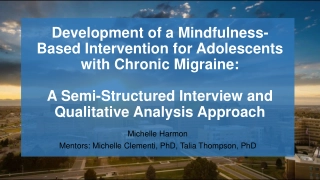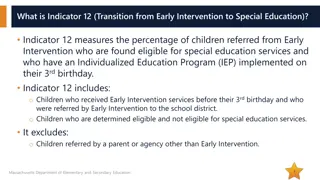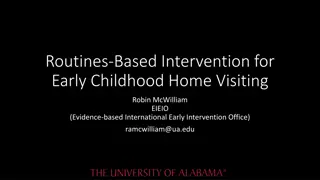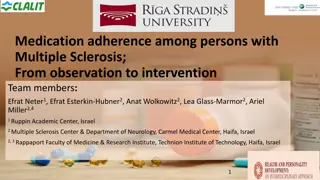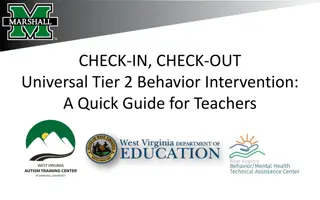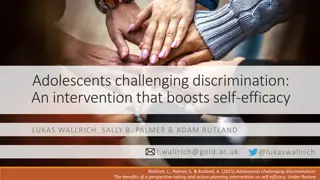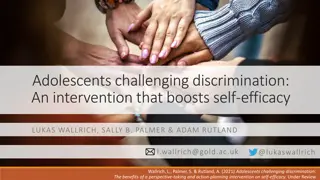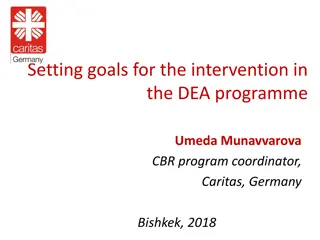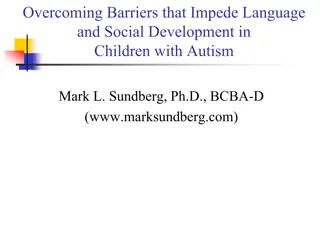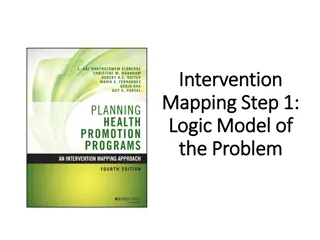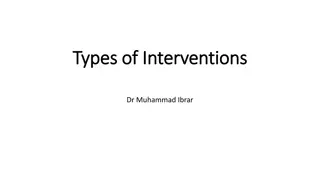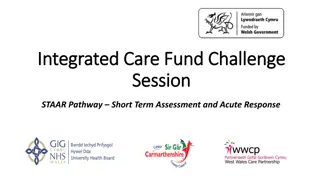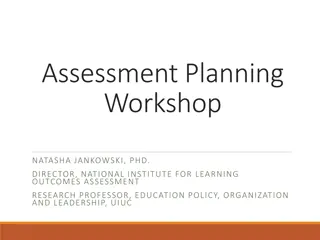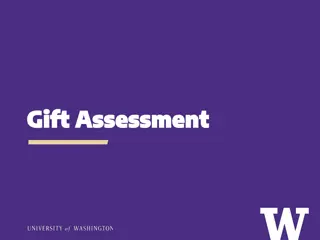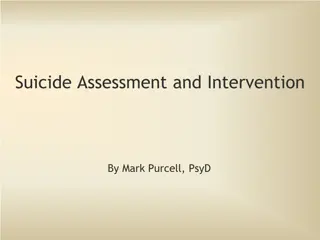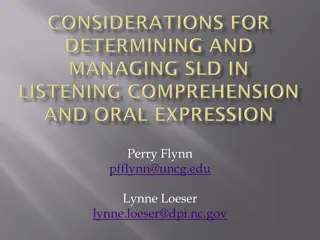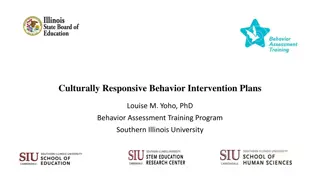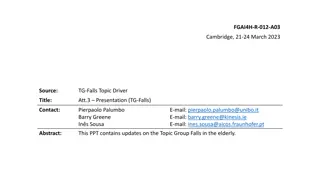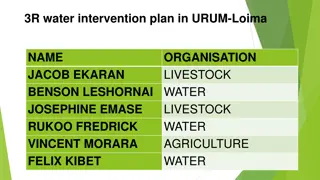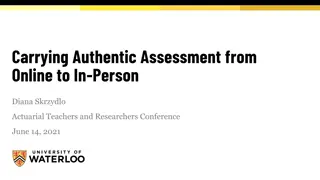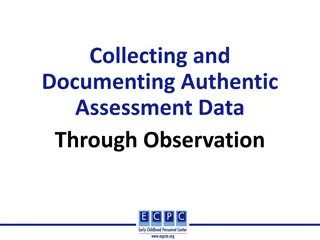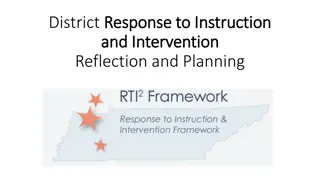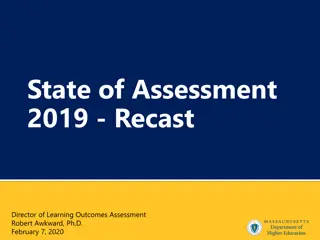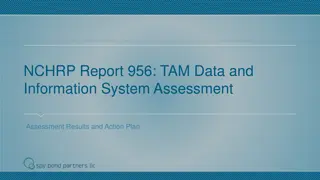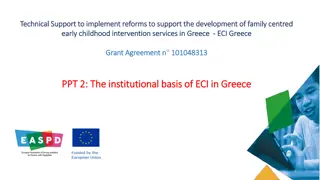Mindfulness-Based Intervention for Adolescents with Chronic Migraine: Qualitative Study
This study focuses on developing a mindfulness-based intervention for adolescents with chronic migraine, aiming to address the lack of effective treatments. Through remote interviews and qualitative analysis, stakeholders' experiences and feedback are being gathered to adapt the intervention. The re
0 views • 15 slides
Social Network-Based Intervention Improves HIV Testing and Linkage Among Fishermen in Kenya
In sub-Saharan Africa, a study was conducted among Lake Victoria fishermen in Kenya to assess the effectiveness of a social network-based intervention in improving HIV testing and linkage outcomes. Results showed significantly higher rates of HIV self-testing and linkage to health facilities in the
0 views • 19 slides
Sheffield Early Help Assessment Form Update and Integration with Extended Support Plan
Sheffield has introduced an updated Early Help Assessment form to streamline the assessment process within the Early Help System. This new form combines the Early Help Assessment with the Extended Support Plan, aligning various assessment tools and referral forms into one comprehensive document. The
5 views • 22 slides
Enhancing Language Learning Through Peer Assessment
Explore the benefits of peer assessment as a valuable tool for language learning, comparing it with self-assessment. Discover the components and challenges of self-assessment, along with the potential of peer assessment to improve accuracy and promote self-regulation. Gain insights into what peer as
3 views • 29 slides
Complex SFA CTO Intervention Live Case Study - 11/29/2023
A 72-year-old gentleman with severe RLE claudication referred for evaluation. Despite medical therapy, he experiences rest pain. Past medical history includes diabetes, hypertension, hyperlipidemia, hypothyroidism, and prior PAD intervention. The case details the patient's presentation, vital signs,
1 views • 5 slides
Understanding Indicator 12: Transition from Early Intervention to Special Education
Indicator 12 measures the successful transition of children from Early Intervention to Special Education by evaluating the percentage of children referred from Early Intervention who are found eligible for special education services and have an Individualized Education Program (IEP) in place by thei
1 views • 6 slides
Routines-Based Intervention for Early Childhood Home Visiting
Learn about the Routines-Based Intervention for Early Childhood Home Visiting by Robin McWilliam from the Evidence-based International Early Intervention Office. Explore how children learn, service decision-making, support provision, and evaluation. Understand the importance of needs assessment, eng
0 views • 34 slides
Enhancing Medication Adherence in Multiple Sclerosis Patients
This study explores medication adherence among individuals with Multiple Sclerosis (MS), presenting insights from observation to intervention stages. It delves into the background of MS, adherence, Disease-Modifying Therapies (DMTs), and the challenges faced. The team identifies reasons for non-adhe
0 views • 41 slides
Comprehensive Guide to Check-In, Check-Out Universal Tier 2 Behavior Intervention for Teachers
Explore the Check-In, Check-Out Universal Tier 2 Behavior Intervention designed to provide structure, accountability, and feedback to students, improving behavior and academic success. Discover how it creates a strong home-school connection and is tailored for students not meeting Tier 1 expectation
0 views • 18 slides
Overview of DSW End Point Assessment Team Leader Level 3
DSW End Point Assessment Team Leader Level 3 provides a clear understanding of the assessment process, ensuring individuals comprehend why and when it occurs, responsibilities involved, and how DSW supports them. It covers topics such as what End Point Assessment entails, assessment design and deliv
1 views • 18 slides
Intervention Boosting Self-Efficacy Among Adolescents Challenging Discrimination
Adolescents challenging discrimination through a perspective-taking and action-planning intervention showed increased self-efficacy, particularly among White participants. The intervention, which included facilitated discussion sessions, led to positive outcomes and highlighted the importance of bys
0 views • 7 slides
Boosting Self-Efficacy in Adolescents: Intervention Study
Adolescents challenged discrimination through a perspective-taking and action-planning intervention, leading to increased self-efficacy, especially among White participants. The intervention involved facilitated discussions, self-disclosure, and sharing experiences to empower adolescents to interven
0 views • 7 slides
Effective Intervention Planning for Rehabilitation Services
The intervention in the DEA programme involves a thorough assessment of user needs, formulation of objectives, and planning based on case management technology. The cycle includes assessment, planning, and actual intervention. Prioritizing high-priority problems is essential for effective outcomes.
1 views • 13 slides
Understanding and Addressing Learning and Language Barriers in Children with Autism
Children with autism face various obstacles in language and social development. The VB-MAPP Barriers Assessment helps identify and score different barriers affecting individual children. Intervention strategies should directly target the sources of control for observed behaviors. Assessment and indi
1 views • 58 slides
Intervention Mapping Process for Effective Program Development
The intervention mapping process involves several key steps including logic model creation, needs assessment tasks, establishing a planning group, conducting a needs assessment, and utilizing primary and secondary data sources to inform program design and implementation. This method ensures programs
0 views • 35 slides
Understanding Assessment in Medical Education
Exploring the concepts of assessment in medical education, including defining assessment, types of assessment, reliability, validity, and aligning assessment methods with intended learning outcomes. The importance of constructive alignment and the impact of assessment on learning outcomes are also d
1 views • 12 slides
Different Types of Interventions to Address Addiction Challenges
Every individual's addiction story is unique, requiring different types of interventions tailored to their specific needs. This article explores four popular intervention approaches - simple intervention, classical intervention, family system intervention, and crisis intervention - each designed to
1 views • 7 slides
Assessment Matters in Sociology: Enhancing Learning Through Evaluation
Explore the significance of assessment in sociology education, focusing on key questions to evaluate current assessment procedures, review individual course assessments, and develop strategies to enhance student learning outcomes. Delve into the centrality of assessment in the learning process, with
1 views • 15 slides
Integrated Care Fund Challenge: STAAR Pathway for Sustainable Services
The Integrated Care Fund Challenge introduces the STAAR Pathway, a short-term assessment and acute response program aimed at preventing, delaying, or reducing care needs. Through a multi-disciplinary team, the program provides a range of services to individuals, emphasizing prevention and early inte
0 views • 18 slides
Insights into Managing Assessment in the Classroom by Assessment Research Group
Explore the importance of standards and assessment in education through the lens of the Assessment Research Group. Gain valuable perspectives on curriculum delivery, understanding the assessment system, learner assumptions, task parameters, and more. Discover how language, structure, and agency play
2 views • 25 slides
Workshop on Assessment Planning by Dr. Natasha Jankowski
Dr. Natasha Jankowski, Director of the National Institute for Learning Outcomes Assessment, conducts a workshop focusing on effective use of assessment data to enhance undergraduate education. The workshop covers areas like evaluating assessment plans, program learning outcomes, and assessment rubri
0 views • 30 slides
Enhancing Understanding through Assessment in Educational Design Workshop
Learn and collaborate on assessment practices in education design at the "Understanding by Design Assessment Focus" workshop. The agenda includes sessions on summative and formative assessment, feedback, reporting, and more. Engage in activities like generating questions, finding destination partner
1 views • 76 slides
Institutional Assessment Planning Workshop Feedback and Insights
Feedback and insights from a recent institutional assessment planning workshop led by Dr. Mark Nicholas at FSU S. Warren Conference Center & Inn. Participants provided feedback on the usefulness of the content, presenter knowledge, ability to develop assessment plans, post-training assessment knowle
1 views • 9 slides
Understanding Higher Education Assessment: The Complete Guide
Higher education assessment involves a systematic process of collecting, reviewing, and utilizing information to improve student learning and development. This guide covers the assessment cycle, learning outcomes, the mission behind assessment in higher education, what assessment is and is not, reas
1 views • 36 slides
Understanding Gift Assessment Process at University of Washington
The Gift Assessment Process at University of Washington involves applying a 5% assessment to select current-use gifts over $1,000 and under $5 million. This assessment supports the university's advancement efforts and institutional priorities by transferring 5% of eligible contributions to the Provo
1 views • 5 slides
Understanding Suicide: Assessment, Intervention, and Prevention
This resource provides valuable insights into suicide assessment, intervention, and prevention by discussing myths vs. facts, risk and protective factors, cultural competency, and statistics. It emphasizes the importance of recognizing suicide as a complex issue influenced by individual characterist
0 views • 66 slides
Overview of Environmental Impact Assessment and Strategic Environmental Assessment Directives
Environmental Impact Assessment (EIA) and Strategic Environmental Assessment (SEA) play crucial roles in evaluating the impact of planned activities on the environment. This content delves into the concept, origins, development, and key elements of environmental assessment, discussing the legal fram
2 views • 35 slides
Institutional Assessment and Effectiveness Workshop Achievements at SUNY Oneonta
The Office of Institutional Assessment and Effectiveness at SUNY Oneonta has made significant progress in developing assessment protocols and processes, leading to a culture of assessment. This includes completing planning and assessment cycles, establishing objectives and procedures, and aligning u
1 views • 16 slides
Comprehensive Assessment and Intervention Strategies in Special Education
This presentation delves into various assessment tools, service providers, eligibility criteria, and intervention strategies in special education. It emphasizes the importance of interventions as a gateway to addressing mild articulation, voice, fluency, and language issues before determining eligib
0 views • 49 slides
Oregon Department of Education Assessment and Accountability Resources
Access important information on assessments, accountability, and reporting from the Oregon Department of Education. Find resources on updating assessment records, accessing student scores, and staying informed about assessment requirements for the 2023-24 academic year. Explore links for assessment
0 views • 55 slides
Oregon Department of Education - Assessment Resources and Updates
Explore the Assessment Record Updating Application (ARUA), Accountability Warehouse Extract (AWE), Secure Assessment Reports, and other important tools and information provided by the Oregon Department of Education for assessment data owners, analysts, and partners. Access links for assessment admin
0 views • 54 slides
Culturally Responsive Behavior Intervention Plans Webinar Series
This webinar series explores the significance of culturally responsive evidence-based behavior intervention plans for students, especially those from historically marginalized groups. It addresses the impact of exclusionary discipline practices, provides insights on functional behavior assessment (F
0 views • 28 slides
Advances in Fall Risk Assessment and Management for Older Adults
This presentation delves into updates on the stratification tool for fall risk in community-dwelling older adults, emphasizing the importance of early intervention through opportunistic health visits. It discusses a decision tree model for assessing fall risk, highlighting the significance of histor
0 views • 12 slides
Water Intervention Plan in Urum-Loima Region
This water intervention plan in the Urum-Loima region focuses on addressing water gaps and potential zones for groundwater exploration. It includes related interventions such as open water storage and sand dams to meet current and future water demands for domestic, livestock, and agricultural use. T
0 views • 9 slides
Enhancing Teaching Assessment for Actuarial Education
Exploring the transition of assessment practices from online to in-person settings, this presentation by Diana Skrzydlo at the Actuarial Teachers and Researchers Conference delves into the purpose of assessment, key principles, and activities for effective evaluation. Discover insights on diagnostic
0 views • 10 slides
Authentic Assessment through Systematic Observation: Best Practices
Explore the process of authentic assessment through systematic observation in early childhood education. Learn about collecting, documenting, and interpreting assessment data using evidence-based practices and technology. Discover the importance of working collaboratively with families and professio
0 views • 53 slides
District Response to Instruction and Intervention Planning
Explore the District's Response to Instruction and Intervention, including goals, guiding questions, materials, guiding principles, objectives, and norms for successful implementation. The focus is on reducing students scoring below basic, creating effective spaces for instruction, utilizing data, d
0 views • 19 slides
Assessment Practices in Higher Education Institutions
Dive into the state of assessment for the year 2019, featuring insights on hosting assessment days, establishment of assessment committees, implementation of institutional and program learning outcomes, appointment of a Director of Assessment, compensation for faculty members focusing on assessment,
0 views • 8 slides
NCHRP Report 956 TAM Data and Information System Assessment
This content provides an overview of NCHRP Report 956 focusing on the TAM data and information system assessment results and action plan. It includes details on assessment outcomes, recommendations, implementation action plans, and tools for self-assessment and improvement methodology. The content a
0 views • 21 slides
Supporting Family-Centered Early Childhood Intervention Services in Greece
The grant agreement aims to implement reforms supporting the development of family-centered early childhood intervention services in Greece. It emphasizes the human rights and child rights framework, highlighting the legal and political basis of early childhood intervention in the country. The conte
0 views • 7 slides
